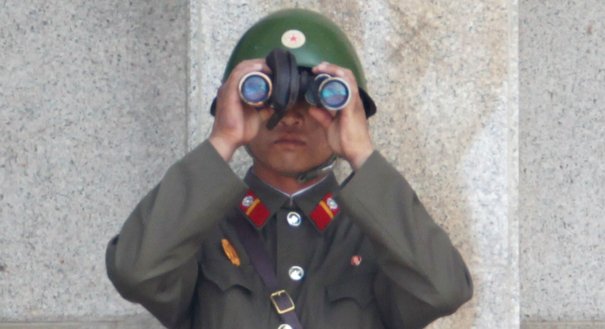The region where North Korea is located always played an important role in Japan’s history. The local Kingdom of Goguryeo (37 BC–668 AD) and the Kingdom of Balhae (698–926) were an important geopolitical factor for ancient Japan, often balancing the threats emanating from the Kingdom of Silla (57 BC–935 AD, in southern half of the peninsula) and the mighty Tang Dynasty (618–907).
Today Japan does not have diplomatic relations with North Korea, but both have substantial bearing on each other’s society. Some Koreans who remained in Japan after the World War II have achieved significant success in business, especially in Pachinko (quasi casino) industry (slightly below 200 billion dollars of sales in 2012!), and try to donate part of the profit to North Korea. And some Japanese politicians may be serving as agents of influence for North Korea. However, U.N. sanctions are now in force, and currently there is no direct trade between both countries.
Before the sanctions were introduced, the Japanese government occasionally granted humanitarian assistance to North Korea, but its volume was not large. In September 2002, Japan’s Premier Koizumi made a surprise visit to North Korea, but he failed in establishing diplomatic relations largely because of the “abduction” case.
North Korea had abducted several Japanese citizens probably for the sake of intelligence; several of them were returned to Japan owing to Koizumi’s visit, some appear to have perished, but the rest still seem to be kept in North Korea. Pending the final solution of this problem normalization of the relations is shelved. Prime Minister Abe has been a vehement advocate of a hawkish stance on this issue.
North Korean nuclear missile is yet another concern for Japan. But vis-a-vis North Korea the “nuclear umbrella” held by the United States is still valid due to the drastic gap in the quantity of nuclear warheads between the United States and North Korea; and the missile defense system—which Japan develops jointly with the United States—will enhance Japan’s resilience. It is true that a larger number of the Japanese now dream about nuclear armament, but even if it be realized, Japan’s meager nukes will not deter the adversaries from delivering a first strike on Japan; with one bomb dropped on Tokyo, Japan will be deprived of capability for retaliation.
All this makes Japan’s position rather passive in the six-party talks on denuclearization of North Korea. Deals are made among the four, North Korea, South Korea, the United States, and China, and Japan merely will get an invoice for financial contribution. Further, the United States may want to expand the scope of the talks so that they become a sort of a regional U.N. Security Council. But the Japanese government is not fond of this idea, since the format may put Japan in an unfavorable position when China and both Koreas group together to exert pressure on Japan.
In a longer perspective, I do not think that both Koreas will reunite any time soon. The privileged elite in North Korea will not allow it. But if they ever merge, the unified Korea will become a large regional power probably with nuclear missiles. If that ever happens, the ancient balancing game will come back to the region, this time with Russia performing the role of Goguryeo and Balhae kingdoms.
